|
Andrea
Pia YATES |
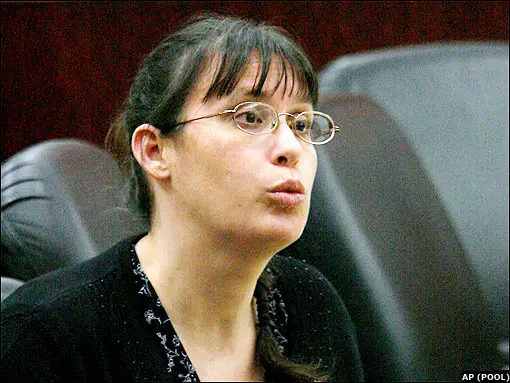
Yates, seen here during a Feb. 24, 2006, pretrial hearing, has
been on anti-psychotic
and anti-depressant medications since being
taken into custody in 2001.
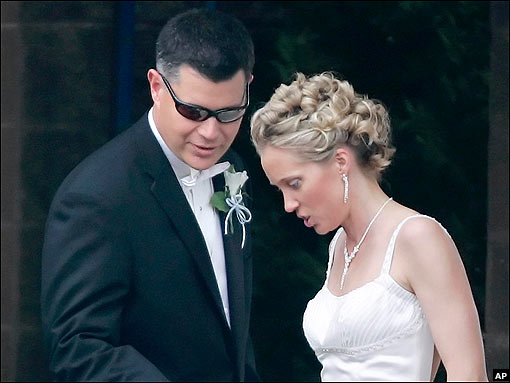
Rusty and Andrea divorced in March 2005. Rusty married Laura
Arnold, a woman he met at church,
in March 2006 at the Clear Lake
Church of Christ. Yates says he continues to stand by his ex-wife's
defense and visits her regularly in prison. He says his new wife is
supportive of his relationship
with Yates. Friends of Yates have
told reporters that she was hurt by his decisions.
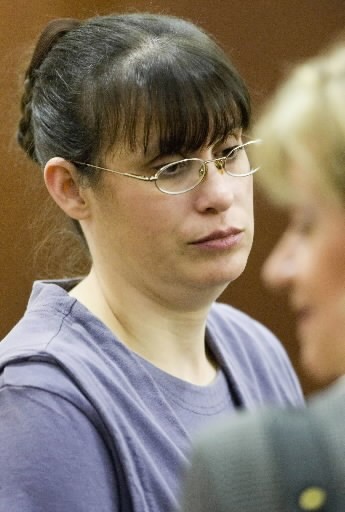
Andrea Yates, March 2006.
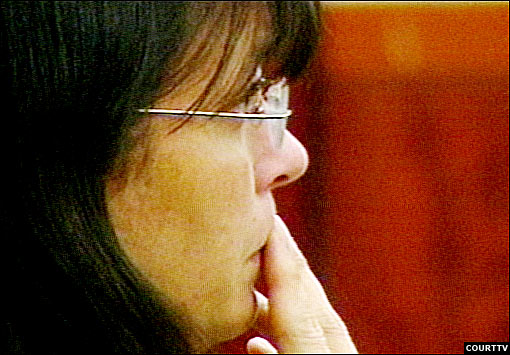
On June 26, 2006, prosecutor Kaylynn Williford gave opening
statements and described how Yates
called her children one by one
into the bathroom on June 21, 2001, and held them under the water
until they stopped struggling. "She knew it was wrong," Williford
said. Defense attorney George
Parnham told jurors that Yates'
psychiatrist took her off Haldol, an anti-psychotic, on June 4, 17
days before the killings. If she were still on Haldol, Parnham said,
the children would still be alive.

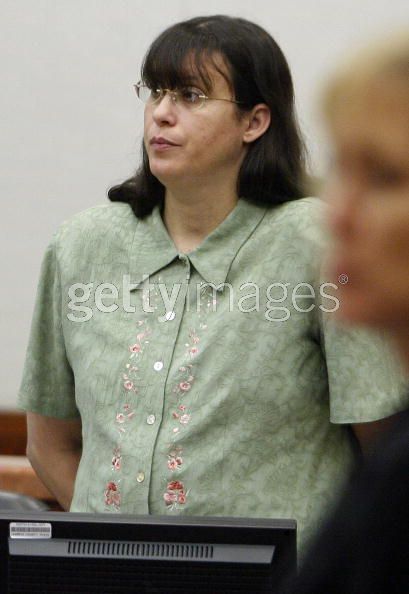

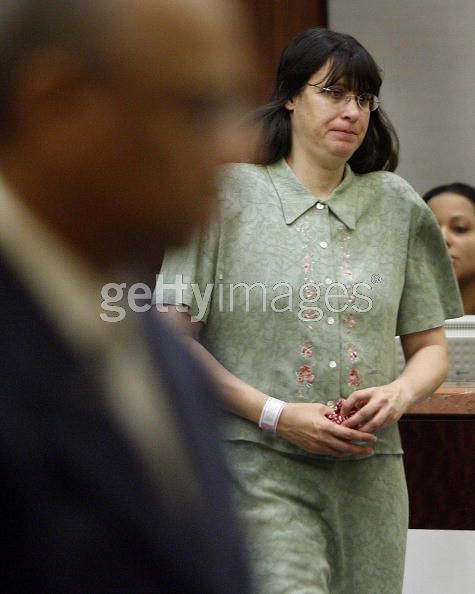
Andrea Yates during her second murder trial in Houston on June
29, 2002.
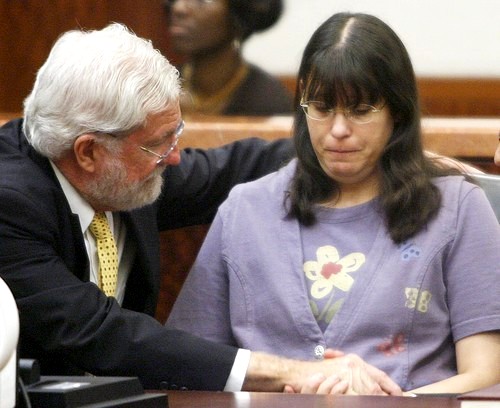
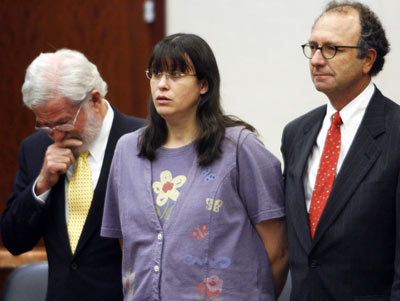
On July 26, the jury reached a verdict. Yates stood with defense
attorneys, George Parnham, left,
and Wendell Odom and watched the
jurors file in after spending 13 hours over three days,
deliberating
in sequestration, before reaching a decision.
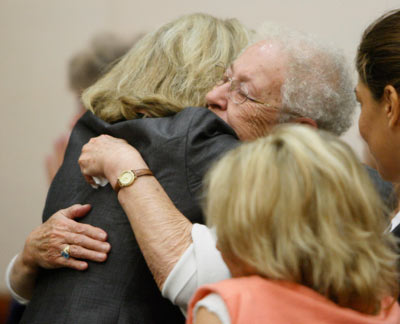
"Not guilty by reason of insanity," the judge read aloud the
panel's verdict. It was a complete
turnaround from Yates' first
trial. Mary Parnham, left, wife of defense attorney George
Parnham,
hugged Yates' mother, Karin Jutta-Kennedy, as they both wept.
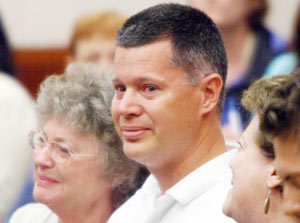
Rusty Yates cried and nodded his head as the verdict was read.
His mother Dora Yates, left,
and aunt, Fairy Caroland, right, cried
tears of joy and relief. Rusty and his mother, potential
witnesses,
were forbidden by the judge from talking to the media or attending
Yates' trial,
but they remained staunch supporters of her defense.

Jury foreman Todd Frank told reporters that the panel had endured
the most intellectually
and emotionally challenging experience of
their lives. "It was very clear to us all that she
did have
psychosis, before, during and after," Frank said of Yates' mental
condition when
she drowned her children. Their verdict also conveyed
a message to society. "Don't let this
happen again. Do what you've
got to do with the legislation, with insurance companies,"
Frank
said. "Don't let this happen again."
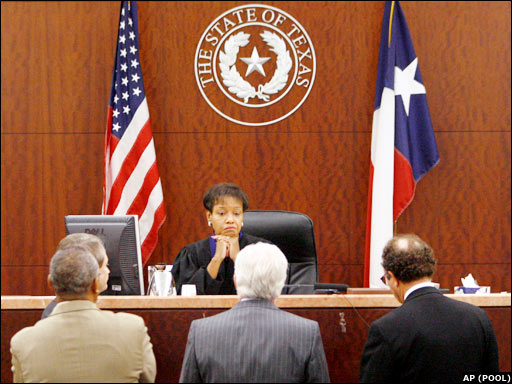
At a hearing the next day, State District Judge Belinda Hill
committed Yates to maximum-security
North Texas State Hospital.
Hospital records are confidential, but protocol dictates that
officials
will review her mental state and decide whether she is a
danger to herself or society and whether
she is eligible for
admission at a medium-security facility. Her family and attorneys
say they
would like Yates to be transferred to Rusk State Hospital,
which is closer to home.

|
|
|















